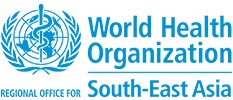New Delhi | 24 December 2021 – Calling on people to support measures put in place by countries in view of the new COVID-19 variant and holiday season, the World Health Organization today said the overall threat posed by Omicron will also depend on how people perceive risk and follow measures to prevent and control its further spread.
“The threat from Omicron not only depends on how transmissible the virus is, or severity of the disease it can cause, or its impact on vaccines, but also on how people understand and perceive its risk, and follow control measures, including public health and social measures,” said Dr Poonam Khetrapal Singh, Regional Director, WHO South-East Asia Region.
The key preventive and protective measures for all individuals is to wear a well-fitting mask, observe physical distancing, avoid crowds, as much as possible ventilate indoor spaces, ensure hand hygiene and cough etiquette, get vaccinated, and continue to do it all even after being fully vaccinated, the Regional Director said.

People must contribute towards successful implementation of the various measures that countries have put in place at national and sub-national levels in view of the ongoing pandemic, the emergence of new variants and holiday and festive season, the Regional Director said.
Omicron is spreading rapidly in countries with high levels of population immunity and it remains uncertain to what extent the rapid growth can be attributed to immune evasion or increased transmissibility or a combination of both. There is still limited data on clinical severity of Omicron variant, however, hospitalizations in UK and South Africa continue to rise.
Increased social mixing during holiday season and large gatherings may intensify transmission and lead to rise in cases, which could be exponential with a more transmissible variant.
Rapid increase in case counts risks overwhelming healthcare systems and impacting accessibility to health care for those most in need of life saving services both for COVID-19 and non-COVID-19 health issues.
“People’s support is critical to curtailing spread of omicron, as also the pandemic, and has been well demonstrated throughout the course of the pandemic,” Dr Khetrapal Singh said.
Countries must continue to engage with communities, share evidence-based information on Omicron and other circulating variants and potential implication for the public in a timely manner, including what is known and what is unknown, and what is being done by authorities.
Earlier this week, WHO Director-General Dr Tedros Adhanom Ghebreyesus said, “an event cancelled is better than a life cancelled…. It’s better to cancel now and celebrate later, than to celebrate now and grieve later.”
“As individuals we must take all possible measures to protect ourselves and also protect others,” said Dr Khetrapal Singh.
